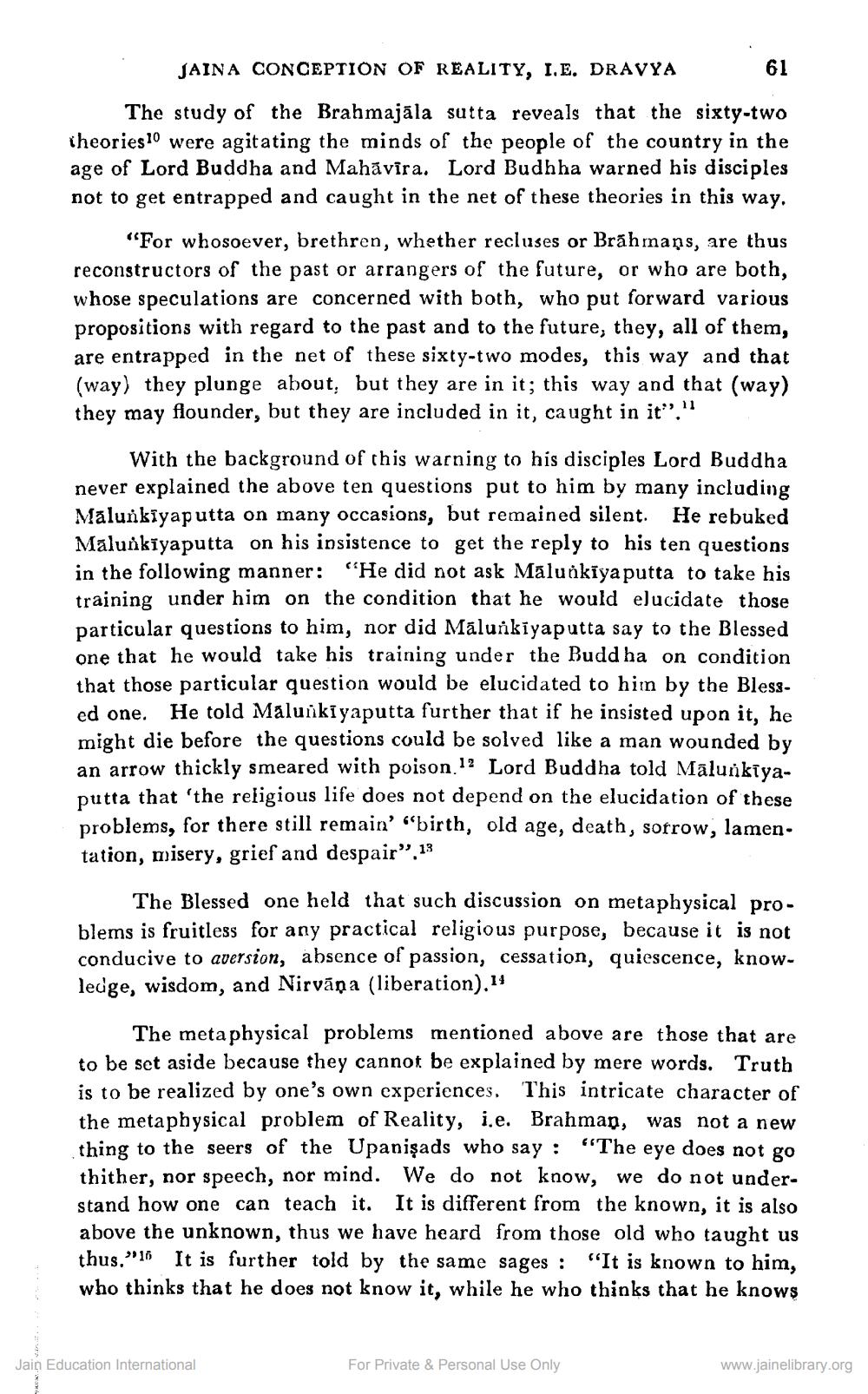________________
JAINA CONCEPTION OF REALITY, I.E. DRAVYA
61
The study of the Brahmajāla sutta reveals that the sixty-two theories 10 were agitating the minds of the people of the country in the age of Lord Buddha and Mahavira. Lord Budhha warned his disciples not to get entrapped and caught in the net of these theories in this way.
"For whosoever, brethren, whether recluses or Brāhmaṇs, are thus reconstructors of the past or arrangers of the future, or who are both, whose speculations are concerned with both, who put forward various propositions with regard to the past and to the future, they, all of them, are entrapped in the net of these sixty-two modes, this way and that (way) they plunge about, but they are in it; this way and that (way) they may flounder, but they are included in it, caught in it''.
With the background of this warning to his disciples Lord Buddha never explained the above ten questions put to him by many including Malunkiyaputta on many occasions, but remained silent. He rebuked Malunkīyaputta on his insistence to get the reply to his ten questions in the following manner: "He did not ask Malunkiya putta to take his training under him on the condition that he would elucidate those particular questions to him, nor did Málunkiyaputta say to the Blessed one that he would take his training under the Buddha on condition that those particular question would be elucidated to himn by the Blessed one. He told Malucikiyaputta further that if he insisted upon it, he might die before the questions could be solved like a man wounded by an arrow thickly smeared with poison 12 Lord Buddha told Mālunkiyaputta that 'the religious life does not depend on the elucidation of these problems, for there still remain' “birth, old age, death, sorrow, lamentation, misery, grief and despair” 13
The Blessed one held that such discussion on metaphysical problems is fruitless for any practical religious purpose, because it is not conducive to aversion, absence of passion, cessation, quiescence, knowledge, wisdom, and Nirvana (liberation).11
The metaphysical problems mentioned above are those that are to be set aside because they cannot be explained by mere words. Truth is to be realized by one's own experiences. This intricate character of the metaphysical problem of Reality, i.e. Brahman, was not a new thing to the seers of the Upanişads who say: "The eye does not go thither, nor speech, nor mind. We do not know, we do not understand how one can teach it. It is different from the known, it is also above the unknown, thus we have heard from those old who taught us thus."'11 It is further told by the same sages : “It is known to him, who thinks that he does not know it, while he who thinks that he knows
Jain Education International
For Private & Personal Use Only
www.jainelibrary.org




